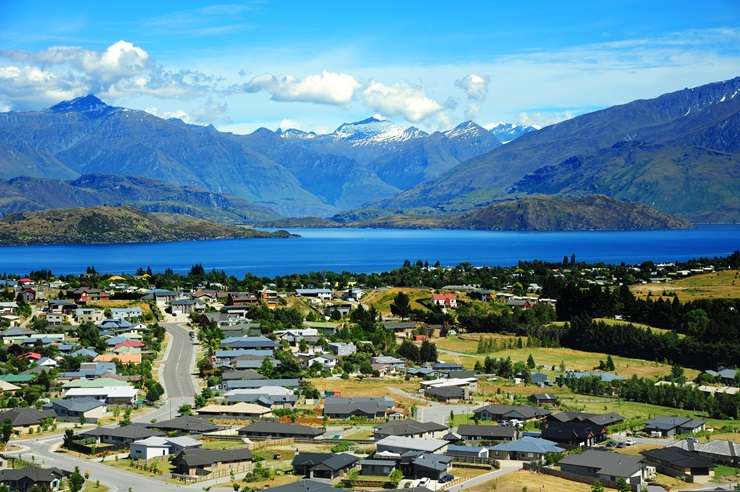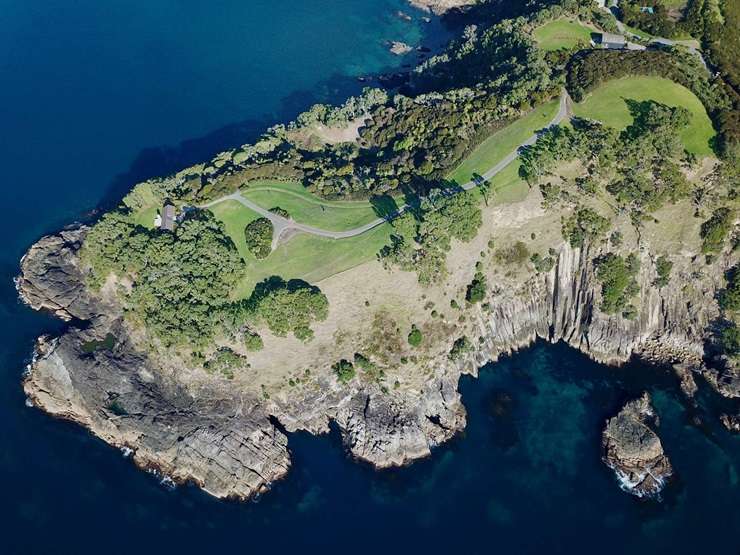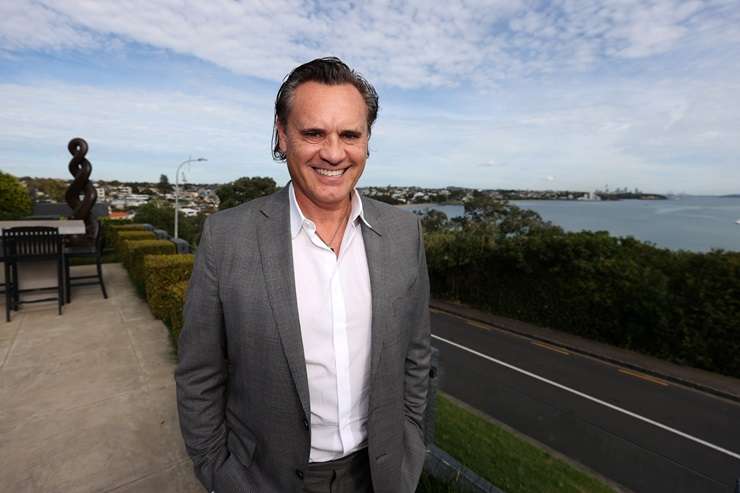- Agents report promising signs, with high-value deals approved and potential changes to the Active Investor Plus Visa.
- Some advocate raising the threshold for foreign purchases to $5 million, citing economic benefits.
- Speculation is growing within the real estate industry that New Zealand’s foreign buyer ban could be relaxed this year.
OneRoof approached agents working at the top end of the market about the fresh round of rumours and while none were privy to any legislative changes planned by the Government they all said more wealthy international buyers in the market would give the economy a much-needed boost
Start your property search
National has been tight-lipped on the topic ever since it ditched its pre-election pledge to change the rules on foreign purchases of New Zealand property as part of its coalition pact with New Zealand First.

New Zealand Sotheby’s International Realty managing director Mark Harris: “I would like to see it made much simpler for foreigners to invest in New Zealand." Photo / Supplied
National had pitched the policy as a tax-raising initiative, arguing it could bring in $740m a year with a 15% tax on all foreign purchases of New Zealand property of $2m-plus.
Rumours of a change of heart swirled early last year after Winston Peters, the Deputy Prime Minister and New Zealand First leader, said he was open to relaxing the foreign buyer ban for ultra-expensive homes if there were economic benefits.
Nothing came of Peters’ remarks, however, talk of the Government revisiting the tax has resurfaced in recent months.
Agents told OneRoof there had been some promising signs of change: the Overseas Investment Office (OIO) had approved several high-value deals in the last year and a recent announcement highlighted that the Active Investor Plus Visa program would be revised early this year, which agents hope will include allowances for residential property.
Discover more:
- 'Elite property tinder' - the secret house sales in NZ's richest suburbs
- Hated house features: What buyers and agents can’t stand at open homes
- Real estate's most expensive streets revealed - NZ v Australia
New Zealand Sotheby’s International Realty managing director Mark Harris told OneRoof: “If you are a foreigner investing $15m into the Active Investor Plus program to obtain a NZ visa, an investment in a residential home could contribute towards qualifying.”
Harris, who wrote an open letter to the Government last year calling for changes to the foreign buyer ban, did not think there would be a price threshold for foreign purchases if they were incorporated into the Active Investor Program.
Harris said homeowners at the top end of the market could hold off listing if the announcement revealed more foreigners would soon be able to buy in New Zealand as part of changes to the Active Investor Visa Plus program (currently only buyers from Australia and Singapore are exempt from making residential purchases without OIO approval).
“The economy needs the investment and if [the changes] encourage them to invest in New Zealand companies and infrastructure, and to employ people, then that is a positive,” he said.

Queenstown-Lakes agents say they get regular enquiries from overseas buyers about homes in the wealthy enclave. Photo / Getty Images
“I would like to see it made much simpler for foreigners to invest in New Zealand and for us to be viewed by them as an attractive opportunity as opposed to a closed shop accessible to only a privileged few.”
Other prestige real estate agents told OneRoof they would back raising the threshold for foreign purchases to $5m.
Bayleys agent John Greenwood said he had noticed more Overseas Investment Office applications – particularly investment assets – being approved under the current Government.
“We are now quite confident that a strong application with all the right criteria in the plus $10m bracket will normally be processed,” he said.
“If somebody is wanting to invest $10m in a residential house in New Zealand, I would recommend that they actually apply because the Government is wanting offshore money – they are just not prepared at the moment to say that’s the case.
“Because that is not out there, we are only getting people looking who have some form of association with New Zealand – either through family, business or what have you.”

Kauri Mountain Point is looking for a buyer with more than $6m to spend. Photo / Supplied
Greenwood is selling a 10.15-hectare waterfront property at Kauri Mountain Point, in Taiharuru, and a 6ha property with its own private beach at 350 McAuslin Road, in Sandy Bay, Whananaki, which are both in the $6m price range.
“Both are exquisite pieces of real estate that if foreigners could buy them, they would just lap them up,” he said.
He said a green light for properties worth more than $5m could help the economy without hurting first-home buyers. “It’s only about 1% of the sales if it’s $5m. It’s not a lot [of properties], and it certainly doesn’t affect first-home buyers and most Kiwis.”
Barfoot & Thompson prestige agent Paul Neshausen agreed. “I think just opening the doors for foreign investment in real estate for anything over $5m would be the catalyst that we need to get our economy going,” he said.
Neshausen has just returned from attending the Luxury Property Show in Shanghai and said there was plenty of demand for Kiwi homes there. He said Chinese buyers viewed New Zealand as a safe and attractive place to school their kids, but unless they had citizenship or something similar they couldn’t.
It was a stark contrast to other countries such as Dubai, which incentivizes people to buy there with offers of a 10-year visa. He said Chinese buyers at the show were purchasing Dubai properties on the spot.

Barfoot & Thompson agent Paul Neshausen says New Zealand is a dream location for Chinese buyers. Photo / Fiona Goodall
“They [overseas buyers] want to come here and buy exclusive properties and holiday and play golf and enjoy the safety and all the other things New Zealand has got going for it,” Neshausen said.
“They don’t just buy properties and bugger off. They employ people, they buy cars, they buy FMCG goods, they set up environmental initiatives, they are into pest control – protecting birdlife.”
Walker & Co director Hamish Walker said he received one or two enquiries a week from overseas buyers wanting to purchase property in Queenstown.
“These types of people make great contributions locally and are often the first ones to put their hands in their pocket to give generously for local causes.”
CoreLogic chief economist Kelvin Davidson said the number of foreigners buying property in New Zealand had always been low – both before and after the ban was introduced.
“I think sometimes that chat around foreign buyers is sometimes disproportional to their actual influence across the market as a whole,” he said.
“Yes, in some expensive neighbourhoods foreign buyers may have well pushed up house prices, but the average Kiwi isn’t probably that active in those suburbs anyway. So is it really a big deal?”
Davidson conceded that it could depend on whether there was a threshold or not for buyers. If National stuck to its pre-election promise of $2m-plus, then it would only impact a small percentage of NZ properties.
“We think the market this year will be pretty subdued. If the foreign buyer ban was relaxed, it’s not going to change that view. I don’t think relaxing the foreign buyer ban is suddenly going to turn a market that grows by 5% into a market that grows by 20%. It might fuel a bit of extra demand in some certain locations and segments of the market, but I don’t think it transforms a subdued outlook into a boom.”
- Click here to find more properties for sale

















































































